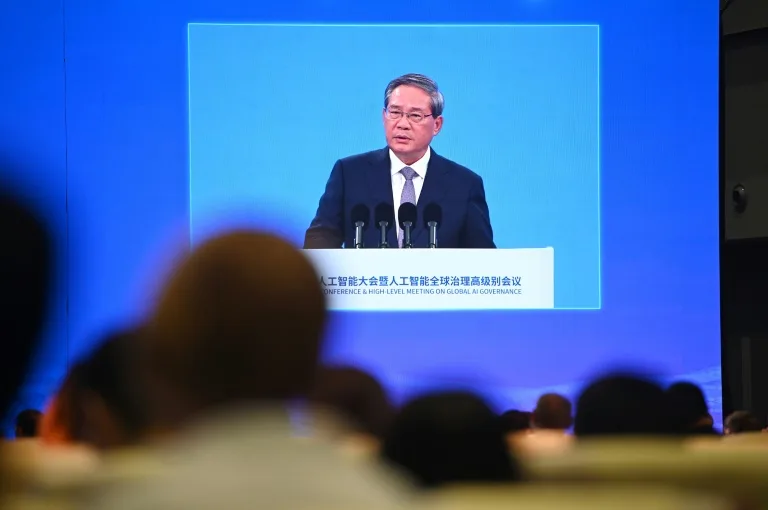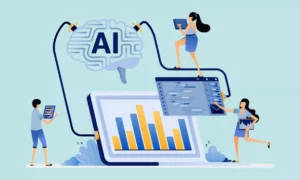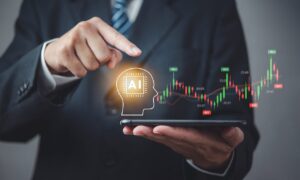Two visions of artificial intelligence’s future collided this week. One sees coordination and shared responsibility. The other bets everything on speed and minimal interference.
Chinese Premier Li Qiang stood before industry leaders in Shanghai on Saturday, outlining plans for international AI cooperation just days after Donald Trump signed executive orders designed to strip away regulatory barriers. The timing wasn’t coincidental.
What happened in Shanghai
Li used China’s biggest AI conference to float something ambitious: a new international organization focused entirely on artificial intelligence governance. His speech at the World Artificial Intelligence Conference painted AI development as fragmented and dangerous without proper coordination.
“How to find a balance between development and security urgently requires further consensus from the entire society,” Li told the audience. The premier warned that without global frameworks, AI risks becoming an “exclusive game” dominated by a few powerful nations and corporations.
China, he announced, would actively promote open-source AI development and share technological advances with developing countries, particularly those in the global south. This represents a marked shift from Beijing’s typically guarded approach to cutting-edge technology.
The conference itself drew heavyweight participants. Geoffrey Hinton, often called AI’s godfather, shared the stage with former Google CEO Eric Schmidt and Anne Bouverot, France’s special AI envoy. Tesla’s Elon Musk, a regular at previous events, was notably absent.
Major Chinese tech companies dominated the exhibition floor. Huawei, Alibaba, and robotics startup Unitree showcased their latest developments alongside Western participants including Tesla, Alphabet, and Amazon.
The American counterpoint
Li’s cooperative vision stands in stark contrast to the Trump administration’s approach. Recent executive orders specifically target what the White House describes as “woke” artificial intelligence models while removing regulatory constraints designed to slow development.
Washington’s strategy prioritizes American technological dominance through deregulation. Export restrictions on advanced AI chips and semiconductor manufacturing equipment already limit China’s access to crucial hardware components. Companies like Nvidia face strict controls on selling their most powerful processors to Chinese buyers.
These restrictions reflect deeper concerns about military applications. US officials worry that advanced AI capabilities could enhance China’s defense systems or enable new forms of cyber warfare.
Li addressed these tensions indirectly, pointing to insufficient chip supplies and restrictions on talent exchange as major obstacles to AI progress. His comments highlighted how geopolitical friction shapes technological development in ways that purely market-driven competition cannot.
Why this matters beyond politics
The philosophical divide runs deeper than trade disputes or military concerns. It touches fundamental questions about how transformative technologies should develop in an interconnected world.
Consider the internet’s evolution. Early decisions about protocols, governance structures, and access policies shaped decades of digital development. Similar choices around AI could prove even more consequential given the technology’s potential impact on employment, privacy, and social systems.
Recent research underscores these stakes. Studies suggest AI-generated search summaries could reduce website traffic by up to 80%, potentially devastating news organizations and other content creators. Such ripple effects extend far beyond the technology sector itself.
Li’s emphasis on open-source development also carries strategic implications. Open-source AI models allow broader participation in technological advancement while reducing dependence on proprietary systems controlled by a handful of companies. This approach could shift global power dynamics in ways that traditional export controls cannot address.
The premier’s outreach to developing nations represents another dimension of this competition. Countries in Africa, Latin America, and Southeast Asia increasingly find themselves choosing between American and Chinese technology ecosystems. AI governance frameworks could become the next battleground for influence in these regions.
Expert perspective missing
[Editor’s note: No direct expert quotes from conference participants were available in source materials at time of writing.]
The absence of detAIled expert commentary reflects the sensitive nature of current US-China AI discussions. Industry leaders often avoid public statements that might complicate their operations in either market.
Looking ahead
Li’s proposal faces obvious obstacles. International cooperation requires trust that both Washington and Beijing currently lack. Previous attempts at technology governance, from cybersecurity agreements to climate change protocols, show how difficult multilateral coordination becomes when core national interests appear threatened.
Yet the alternative carries its own risks. Uncoordinated AI development could create incompatible systems, duplicate safety research, and leave smaller countries without meaningful influence over technologies that will reshape their societies.
The next few months will reveal whether either superpower has appetite for compromise. China’s willingness to share AI advances with developing nations could reshape global technology alliances, particularly if America continues emphasizing purely competitive approaches.
But Beijing’s own track record on international cooperation remains mixed. Previous promises about technology sharing have often come with strings attached or failed to materialize as described.
The stakes extend beyond national competition. How the world’s two largest economies handle AI governance will influence whether this technology develops in ways that benefit broad populations or primarily serves narrow interests.
Can global cooperation emerge from superpower rivalry, or will AI development fragment along geopolitical lines?



























